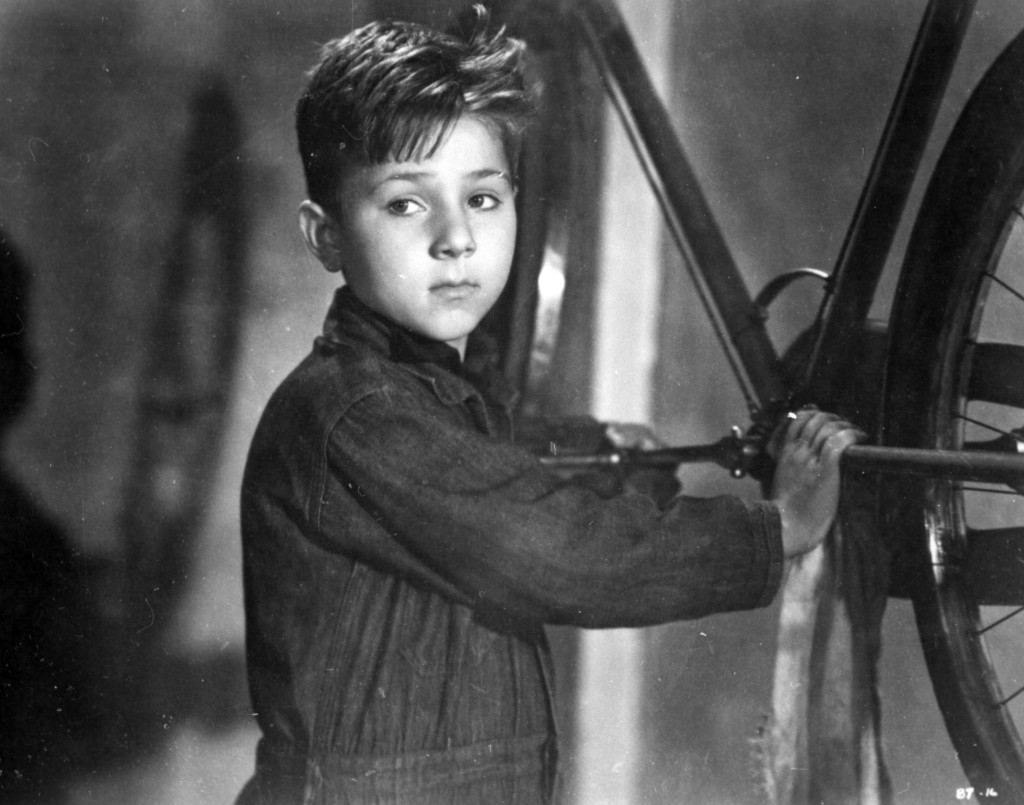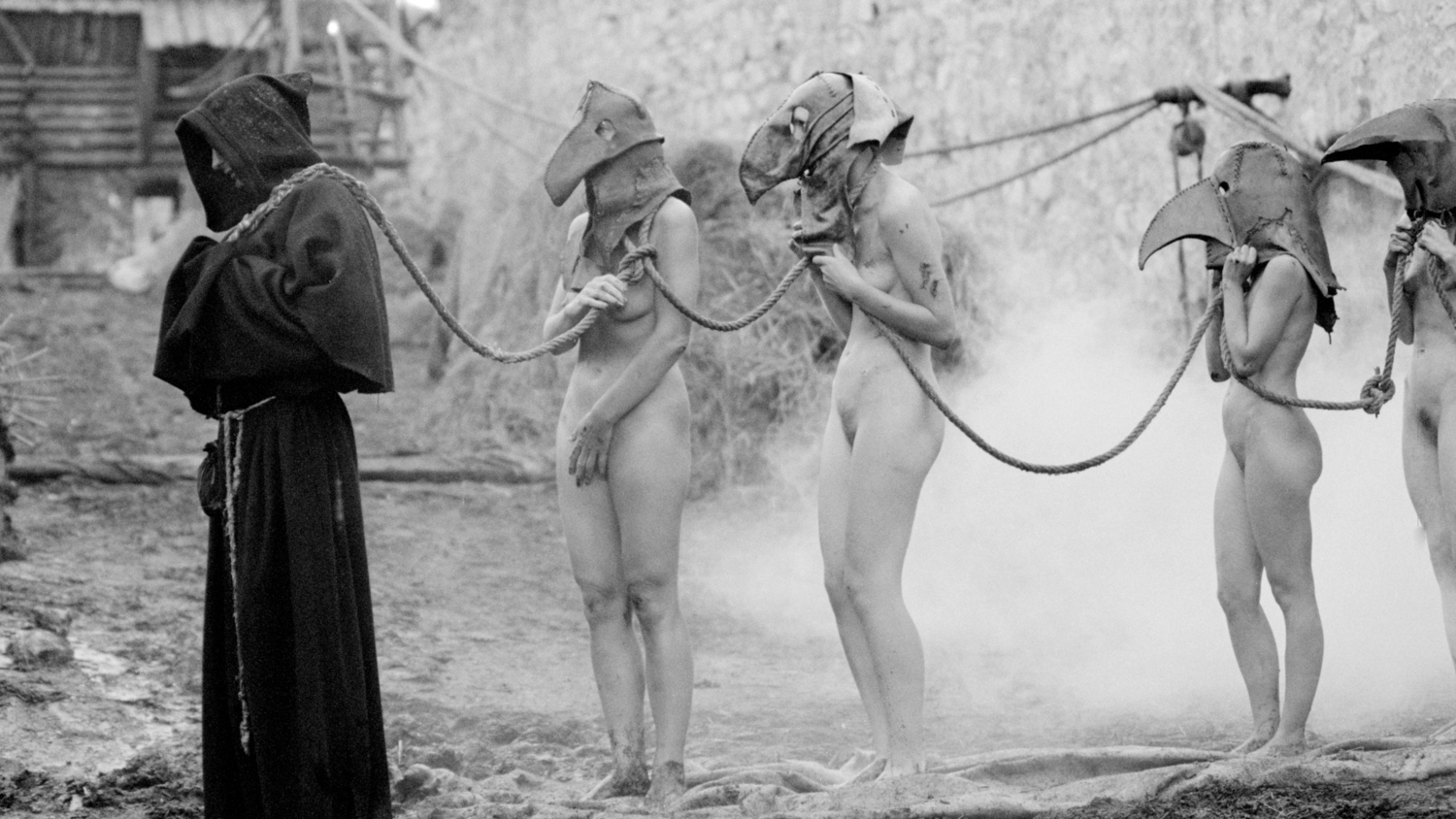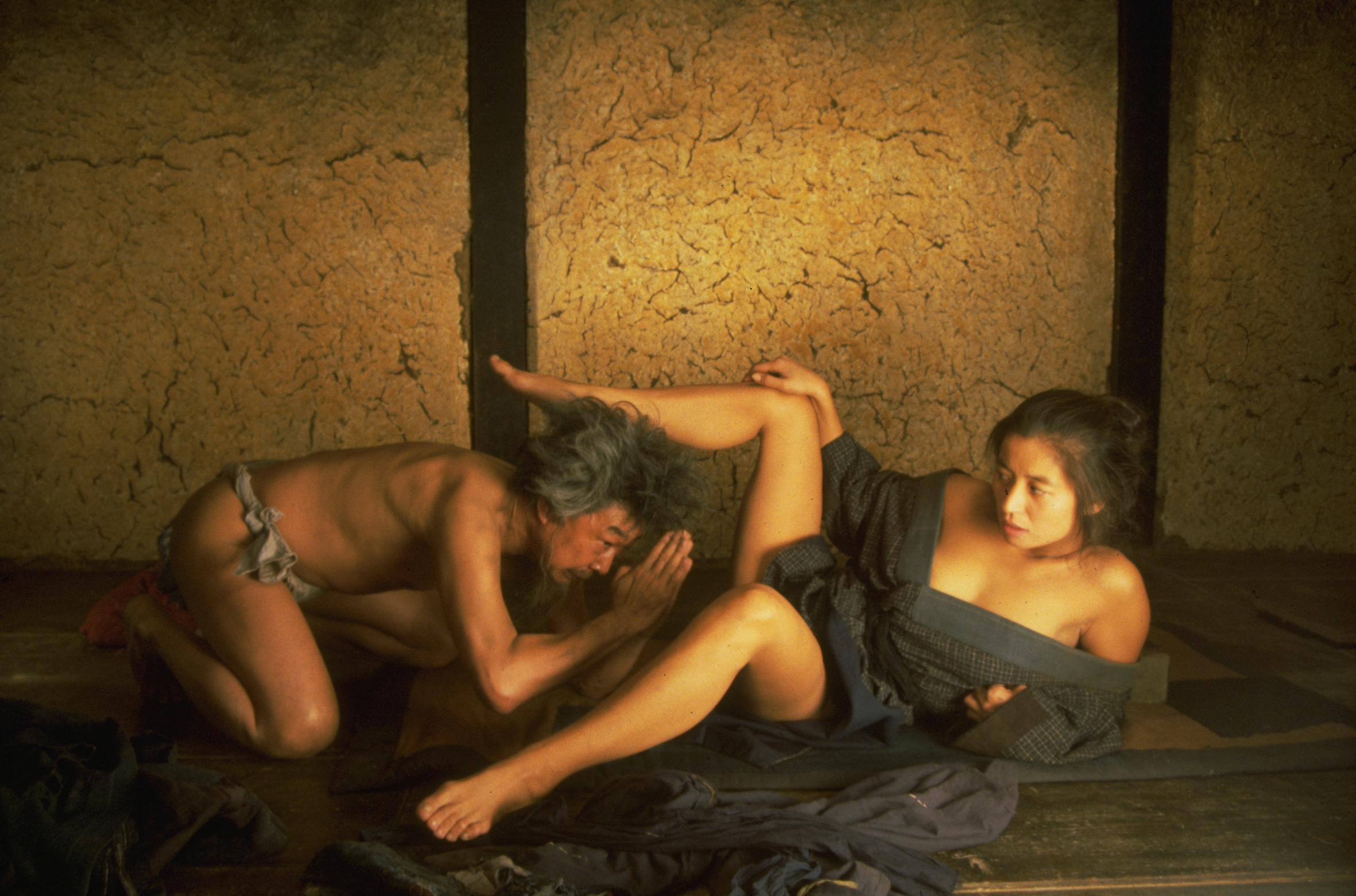The Bicycle Thieves Review
 “Great movie, huh? So refreshing to see something like this after all these… cop movies and, you know, things we do. Maybe we’ll do a remake of this!”
“Great movie, huh? So refreshing to see something like this after all these… cop movies and, you know, things we do. Maybe we’ll do a remake of this!”
So says Griffin Mill (Tim Robbins), the amoral producer in Robert Altman’s The Player. So unassailable is the popular opinion surrounding Vittorio De Sica’s Bicycle Thieves that Altman uses the film as shorthand for the kind of untouchable classic that Hollywood could so easily ruin.
Closely associated with Italian neorealism, even defining the ‘movement’ for some, Bicycle Thieves tells a relatively simple story of a working class man, Antonio Ricci (Lamerto Maggiorani). Antonio’s bike is stolen and, unable to work without it, he desperately searches the streets of Rome, trying to find this simple item that represents a lifeline for him. Accompanied by his son Bruno (Enzo Staiola), Antonio’s search becomes an seemingly unending quest to which there is no happy resolution. Carrying a significant emotional intensity the story of this man searching feels epic in its importance and as the film reaches it’s somewhat bleak climax one surely has to be made of stone not to have become entirely wrapped up in the plight of Antonio and Bruno.
One of the reasons Bicycle Thieves continues to be considered such a classic piece of cinema and why it is such a perfect film for Altman’s purposes is the simplistic but utterly compelling storytelling on display and it is this that plays such a large part in ensuring the audience is so deeply involved in the film. It is the way in which screenwriter Cesare Zavattini and director Vittorio De Sica weave a story that ignores no minor detail that ensures we are 100% invested. Whilst often praised for its ‘realism’ and its methods of production, shooting on the streets, non-actors etc, it is actually the careful, skilful and entirely deliberate writing and direction that make it so compelling.
The film is not simply filled with happy accidents from hours of ‘documentary style’ filming. The short pause whilst Bruno eats in the restaurant, the slow tracking shot across the bikes in the streets of Rome, the low and close shots of all the men jostling around Antonio in the film’s final scene; these expertly constructed moments are all part of the reason Bicycle Thieves works so beautifully. The hands of master storytellers are busy at work.
The neorealist approach is also crucially important though and it carries with it a serious social and moral message, one that also never over simplifies the situation, despite the film’s minimal plotting. Although it never feels too much like Zavattini and De Sica are smuggling this into their film, it is more or less in the forefront, it is certainly impressive in the way in which the ‘message’ part of the film is so effortlessly included in what is essentially an entirely populist film.
Bicycle Thieves is without doubt a masterpiece and one that deserves pride of place in any DVD or Blu-ray collection.
A slightly different version of this review was originally posted at HeyUGuys.





